#laparoscopicherniasurgeryinjabalpur
Text
Choosing the Right Hernia Surgeon: A Vital Decision for Your Health
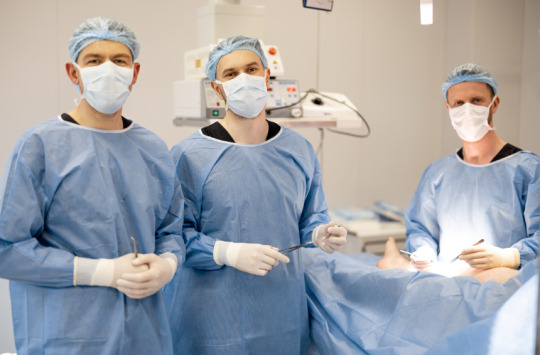
A hernia diagnosis, though overwhelming, can still be managed with the help of the right surgeon who can make the journey bearable and confident through it all. From inguinal to umbilical, or any other type of this condition, find and visit only the best specialists in hernia surgery to make sure you will have a good recovery. This article will look into the things you need to take into account while discovering the right one for your situation to be sure that you have a hernia surgeon in Jabalpur with a high-quality service ranging from diagnosis to postoperative recovery.
The Importance of Selecting the Best Hernia Surgeon
Hernia surgery in Jabalpur is a hernia medical procedure needing both expertise and superior accuracy. The most important factor to be considered by you in the choice of a hernia surgeon will be your treatment experience. Here's why:
1. Expertise Saves Lives: Hernia operation in Jabalpur requires cutting-edge technology and the ability of the surgeon. The proficiency of the experienced hernia surgeon enables him or her to conduct some difficult procedures with decent accuracy, thus minimizing the probability of negative matters and bringing a faster recovery process after surgery.
2. Personalized Care: All patients are different and an experienced hernia surgeon knows the significance of careful tailoring of a surgical plan. They add a personal touch by knowing you best of all that they know about your personal needs, favorite colors, and medical background to come up with a unique treatment plan with the highest success rate.
3. Advanced Techniques: With the constant evolution of hernia surgeries nurturing new methods and technologies to enhance patient outcomes, the field is growing fast. A top-notch hernia surgeon is always up-to-date with the latest advancements in the field as well as well-versed with minimally invasive procedure options such as laparoscopic and robotic surgeries that promote speedier recovery times and lessened scarring.
4. Compassionate Support: It is natural to feel anxious when you have surgery scheduled, but the compassionate surgeon will accompany you through the process upholding his professionalism. The best hernia surgeon in Jabalpur takes time to explain the procedure in detail, and answer your concerns and fears; thereby, ensuring you the correct treatment while ensuring that you are informed, empowered, and reassured.
Choosing the Best Hernia Surgeon: Key Considerations
When selecting a hernia surgeon, consider the following factors to make an informed decision:
1. Credentials and Experience: Look for a surgeon who is board-certified in laparoscopic hernia surgery in Jabalpur and has extensive experience performing hernia repairs. Review their credentials, including their education, training, and track record of success.
2. Patient Reviews and Testimonials: Reading reviews and testimonials from previous patients can offer valuable insights into the surgeon's bedside manner, skill level, and overall patient satisfaction. Pay attention to feedback regarding communication, professionalism, and outcomes.
3. Consultation Experience: Schedule consultations with potential hernia surgeons to discuss your condition, treatment options, and any concerns you may have. Pay attention to how well the surgeon listens to your needs, explains the procedure, and addresses your questions.
4. Hospital Affiliation: Consider the hospital or medical center where the surgeon practices. Choose a facility with a reputation for excellence in surgical care, state-of-the-art equipment, and comprehensive support services.
5. Gut Instinct: Trust your instincts when selecting a hernia surgeon. Choose someone who inspires confidence, instills trust, and demonstrates genuine care and compassion for your well-being.
Finding the best hernia surgeon in Jabalpur is a critical decision that can significantly impact your health and quality of life. By considering factors such as expertise, experience, patient-centered care, and personal rapport, you can select a surgeon who meets your unique needs and ensures the best possible outcome. Remember, your health is worth investing in, so take the time to choose wisely and embark on your hernia treatment journey with confidence and optimism.
#laparoscopicherniaspecialistinjabalpur#herniaoperationinjabalpur#herniasurgeryinjabalpur#bestherniasurgeoninjabalpur#herniasurgeoninjabalpur#laparoscopicherniasurgeryinjabalpur
0 notes
Text
Understanding the Risks and Complications of Hernia Surgery
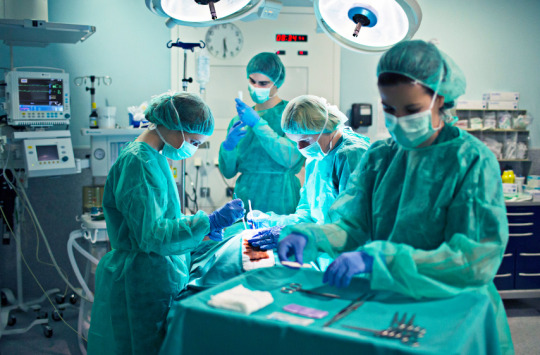
Hernia surgery is a common and generally safe procedure, but like any surgery, it comes with its set of risks and potential complications. It's essential for individuals considering or scheduled for hernia surgery to be informed about these aspects. Let's delve into the possible risks associated with hernia surgery in Jabalpur and how healthcare professionals work to mitigate them.
Understanding Hernia Surgery
Before exploring the risks, let's briefly understand what hernia surgery involves. Hernias occur when an organ or fatty tissue protrudes through a weak spot in the surrounding muscle or connective tissue. Laparoscopic hernia surgery in Jabalpur is often recommended to repair the weakened area and alleviate symptoms.
Common Risks of Hernia Surgery:
1. Infection:
Infections can occur post-surgery. Hernia surgeon in Jabalpur takes extensive precautions to maintain a sterile environment during the procedure, but infections remain a risk.
2. Bleeding:
While uncommon, excessive bleeding can occur during or after surgery. Surgeons are trained to manage bleeding, and patients are closely monitored to detect any signs of abnormal bleeding.
3. Pain and Discomfort:
Pain is a common postoperative experience, but in some cases, individuals may experience prolonged or severe discomfort. Pain management strategies are usually discussed and implemented to ensure patient well-being.
4. Recurrence of Hernia:
Despite a successful surgery, there is a small chance of hernia recurrence. This risk varies depending on the type of hernia and the surgical technique used.
5. Nerve Damage:
Surgical procedures involve navigating delicate structures, and there is a risk of nerve damage. This may lead to numbness, tingling, or, in rare cases, chronic pain.
6. Adverse Reactions to Anesthesia:
Anesthesia carries its own set of risks, including allergic reactions or adverse effects. However, these are relatively rare, and anesthesiologists take precautions to minimize such occurrences.
Mitigating Risks:
Healthcare professionals prioritize patient safety, employing various strategies to mitigate the risks associated with hernia surgery:
1. Thorough Preoperative Assessment:
Comprehensive preoperative assessments help identify any factors that might increase the risk of complications. This includes evaluating the patient's overall health, medical history, and lifestyle factors.
2. Skilled Surgical Technique:
Surgeons use advanced techniques to minimize trauma during surgery, reducing the risk of complications. Minimally invasive procedures, such as laparoscopic surgery, are increasingly popular for their potential to lower risks and accelerate recovery.
3. Postoperative Monitoring and Care:
Close postoperative monitoring is crucial. Healthcare providers keep a vigilant eye on patients during the recovery period to promptly identify and address any potential issues.
While hernia operation in Jabalpur involves risks, it is crucial to recognize that these are often outweighed by the benefits of resolving the hernia and alleviating associated symptoms. Patients are encouraged to engage in open communication with their healthcare providers, discuss any concerns, and actively participate in preoperative and postoperative care plans.
Ultimately, being well-informed about the risks and complications allows individuals to approach hernia surgery with a realistic understanding, empowering them to make informed decisions about their health and well-being. Always consult with the best hernia surgeon in Jabalpur for personalized advice based on your specific medical situation.
#laparoscopicsurgeryinjabalpur#laparoscopicherniasurgeryinjabalpur#herniasurgeoninjabalpur#herniasurgeryinjabalpur#herniaoperationinjabalpur
0 notes
Text
#laparoscopicherniaspecialistinjabalpur#gallbladdersurgeryinjabalpur#laparoscopicherniasurgeryinjabalpur#laparoscopicsurgeoninjabalpur
0 notes
Text
Laparoscopic Surgery: A Revolutionary Approach to Minimally Invasive Healthcare

Laparoscopic surgery, commonly known as minimally invasive surgery, represents a paradigm shift in the world of healthcare. This innovative surgical technique has not only transformed patient experiences but also expanded the scope of medical possibilities. In this article, we'll explore what laparoscopic surgery entails and the compelling reasons that drive its widespread adoption.
Understanding Laparoscopic Surgery:
Laparoscopic surgery in jabalpur is a cutting-edge medical procedure that enables surgeons to perform intricate operations with minimal invasiveness. It relies on specialized instruments and a laparoscope, a tiny camera, to provide a magnified view of the internal organs. Real-time images captured by the camera are displayed on a monitor, guiding the surgeon through the procedure.
The Causes Behind the Rise of Laparoscopic Surgery:
Minimized Trauma: Laparoscopic surgery excels in minimizing the trauma to the patient's body. Instead of large, invasive incisions, it involves tiny keyhole openings, leading to reduced tissue damage and a gentler surgical experience.
Accelerated Recovery: Smaller incisions translate to swifter recovery times. Patients undergoing laparoscopic hernia surgery in jabalpur procedures generally experience less post-operative pain and discomfort, allowing them to resume their daily routines sooner.
Enhanced Safety: The reduced risk of complications, such as infections and bleeding, makes laparoscopic and GERD surgery in jabalpur a safer choice for patients. This is particularly significant for individuals with underlying health conditions.
Precision and Accuracy: The laparoscope's high-definition imagery enhances a surgeon's precision, facilitating intricate procedures with greater accuracy. This improved visualization contributes to better patient outcomes.
Shorter Hospital Stays: Laparoscopic surgery often necessitates shorter hospital stays compared to traditional open surgeries. This not only reduces healthcare costs but also minimizes the disruption to patients' lives.
Versatility: Laparoscopic techniques find applications across a spectrum of best laparoscopic surgeons in jabalpur or medical specialties, including gynecology, gastroenterology, urology, and orthopedics. From gallbladder removal to cancer surgeries, its versatility benefits patients with a wide array of conditions.
Cosmetic Benefits: Smaller incisions result in less conspicuous scars, offering cosmetic advantages to patients who value the aesthetics of their post-surgical appearance.
Conclusion:
Laparoscopic surgery represents a monumental leap in the field of healthcare. Its minimally invasive nature, coupled with the numerous advantages it offers, has made it the preferred choice for both patients and medical professionals. As technology continues to evolve, laparoscopic procedures are likely to become even more refined and accessible, promising improved healthcare outcomes and enhanced patient well-being in the years to come.
#gallbladdersurgeryinjabalpur#herniasurgeoninjabalpur#gallbladderstonesurgeryinjabalpur#laparoscopicsurgeoninjabalpur#laparoscopicsurgeryinjabalpur#laparoscopicherniasurgeryinjabalpur#herniasurgeryinjabalpur
0 notes
Text
https://www.drdigantpathak.in/sex-after-hernia-surgery-when/

Sex is a natural act and a necessity of every human being. Since almost all the hernias are present on the front side of body one can think that hernia might interfere with sex. Hernia, whether it is below the thigh or near the navel or the incisional hernia of the old operation site —– makes little bit of trouble in the process of sex
https://www.drdigantpathak.in/wp-content/uploads/2021/11/SEX.jpg
WHEN CAN I HAVE SEX ?
When can I have sex after hernia surgery, how can I do it, can hernia recur because of physical efforts done during sex —- Many such questions come in the mind of the patients but due to hesitation they are not able to ask the doctor.
To have sex after any surgery, first of all it is necessary that the patient listen to his/ her body—- when he/ she himself/ herself feels comfortable only then is the right time for sex
You may be uncomfortable due to pain for some time after surgery —- that time is not right. You are mentally unprepared for sex due to physical fatigue and pain after surgery. This is natural. After some time your pain subsides and you feel physically relaxed too. You can have sex at this time
RELATION WITH TYPE OF HERNIA SURGERY
It is generally seen that after laparoscopic surgery, the pain is very less and the recovery of the patient is faster. Patients recover more quickly after laparoscopic surgery, so sex can be quicker and more comfortable than with open incision surgery.
https://www.drdigantpathak.in/wp-content/uploads/2021/11/MOOD.jpg
If the patient feels pain while having sex, then it should be stopped in between and the next day appointment with the doctor should be made.
https://www.drdigantpathak.in/wp-content/uploads/2021/11/DISCUSS.jpg
FEW GENERAL TIPS
Here are few general tips :
Take your own time and do not be in hurry
Be slow and be gentle
Choose position comfortable to you
Stop immediately if pain or discomfort increases
#bestherniasurgeoninjabalpur#herniaoperationinjabalpur#laparoscopicherniasurgeryinjabalpur#laparoscopicsurgeryinjabalpur#bestlaparoscopicsurgeoninjabalpur
0 notes
Text
Post-Hernia Surgery Precautions: Ensuring a Smooth Recovery

Hernia surgery in Jabalpur is a common procedure aimed at repairing a weakened area in the abdominal wall where tissue or organs may protrude. While advancements in medical technology have made the hernia operation in jabalpur safer and more effective, the key to a successful recovery lies in following the right precautions. Here's a comprehensive guide to post-hernia surgery precautions that can help ensure a smooth and uncomplicated healing process.
1. Follow Your Surgeon's Instructions: Your hernia surgeon in jabalpur will provide detailed post-operative instructions tailored to your specific situation. Adhere to these guidelines meticulously to facilitate a successful recovery.
2. Rest and Allow Healing: Adequate rest is vital during the initial days after laparoscopic surgery in jabalpur. Avoid strenuous activities, lifting heavy objects, or vigorous exercises until your surgeon gives the green light.
3. Manage Pain Properly: Pain and discomfort are normal after laparoscopic hernia surgery in jabalpur. Take prescribed pain medications as directed by your doctor to stay comfortable and prevent unnecessary strain on the surgical site.
4. Maintain Good Hygiene: To avoid infection, keep the surgery area dry and clean. Observe the instructions for wound care and bathing provided by your laparoscopic surgeon in jabalpur.
5. Watch for Infection Signs: Look out for infection-related symptoms such a rash, swelling, warmth, or discharge coming from the incision site. Contact your doctor right away if you experience any of these symptoms.
6. Eat a Balanced Diet: Nutrition plays a crucial role in recovery. Consume a diet rich in vitamins, minerals, and protein to support tissue healing and boost your immune system.
7. Stay Hydrated: Drink plenty of fluids to promote healing and prevent constipation, which can strain the surgical site.
8. Gradually Resume Physical Activities: Consult your doctor before resuming physical activities or exercises. Start with light walking and gradually increase intensity as advised.
9. Avoid Straining: Refrain from activities that cause strain on the abdomen, such as heavy lifting, coughing forcefully, or pushing heavy objects.
10. Wear Comfortable Clothing: Choose loose-fitting clothing that won't rub against the surgical site, promoting comfort and preventing irritation.
11. Support the Surgical Site: Some individuals find using a pillow or a cushion to support the abdomen when coughing, sneezing, or laughing provides relief.
12. Monitor Bowel Movements: Constipation can strain the surgical area. If you experience difficulties, discuss safe ways to manage this with your doctor.
13. Attend Follow-up Appointments: Regularly scheduled follow-up appointments allow your surgeon to monitor your progress, address any concerns, and adjust your recovery plan if necessary.
14. Listen to Your Body: Pay attention to the signals coming from your body. Please get medical attention if you have any unexpected pain, swelling, fever, or other symptoms.
Hernia surgery can mark the beginning of your path towards a healthier, more comfortable life. By adhering to these post-operative precautions, you're taking proactive steps to ensure a successful recovery, minimize complications, and regain your normal daily activities sooner. Always consult your best hernia surgeon in Jabalpur for personalized advice and guidance throughout your healing journey.
#bestherniasurgeoninjabalpur#herniasurgery#laparoscopicherniaspecialistinjabalpur#herniasurgeryinjabalpur#herniaoperationinjabalpur#laparoscopicsurgeryinjabalpur#laparoscopicherniasurgeryinjabalpur#herniasurgeoninjabalpur
0 notes
Text
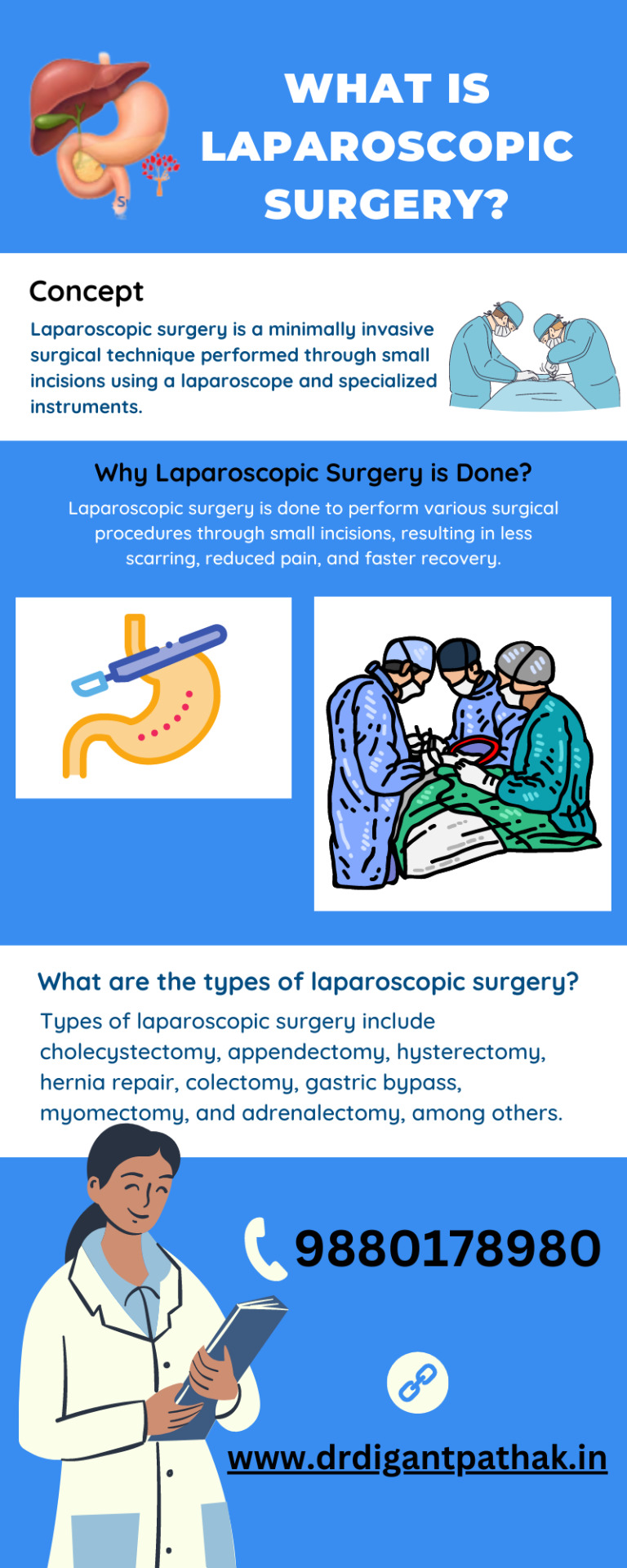
Laparoscopic Surgery: A Minimally Invasive Approach for Various Medical Conditions
Laparoscopic surgery, also known as minimally invasive surgery or keyhole surgery, is a surgical technique that involves performing procedures through small incisions using a laparoscope and specialized instruments. The laparoscope is a thin, flexible tube equipped with a camera and light, allowing the laparoscopic surgeon in jabalpur to visualize the internal organs and tissues on a monitor in real-time. The instruments are inserted through other small incisions to perform the surgery with precision.
Causes for Laparoscopic Surgery: Laparoscopic surgery in jabalpur is used for various medical conditions, including:
Gallbladder disease: Gallbladder surgery in jabalpur for gallstone-related issues.
Appendicitis: Laparoscopic appendectomy for the removal of the inflamed appendix.
Gynecological conditions: Laparoscopic hysterectomy, myomectomy, and ovarian cystectomy.
Hernia repair: Hernia surgery in jabalpur for inguinal, umbilical, and incisional hernias.
Types of Laparoscopic Surgery: The types of laparoscopic surgery are numerous and span across various medical specialties. Some common types include:
Cholecystectomy: Removal of the gallbladder.
Appendectomy: Removal of the appendix.
Hysterectomy: Removal of the uterus.
Colectomy: Removal of part of the colon.
Gastric Bypass: Weight loss surgery for obesity.
Laparoscopic surgery offers advantages such as reduced scarring, faster recovery, and shorter hospital stays, making it a preferred choice for many surgical procedures. However, the suitability of laparoscopic surgery for a specific medical condition is determined by the hernia surgeon in jabalpur based on the patient's individual circumstances.
#laparoscopicherniaspecialistinjabalpur#laparoscopicsurgeryinjabalpur#laparoscopicherniasurgeryinjabalpur#gallbladdersurgeryinjabalpur#gallbladdersurgeonsinjabalpur
0 notes
Text
#laparoscopicsurgeryinjabalpur#laparoscopicherniasurgeryinjabalpur#gallbladdersurgeoninjabalpur#bestherniasurgeoninjabalpur
0 notes
Text

#laparoscopicherniasurgeryinjabalpur#herniasurgeoninjabalpur#herniasurgery#bestherniasurgeoninjabalpur
0 notes
Text
Types of Laparoscopic Surgery: A Comprehensive Overview
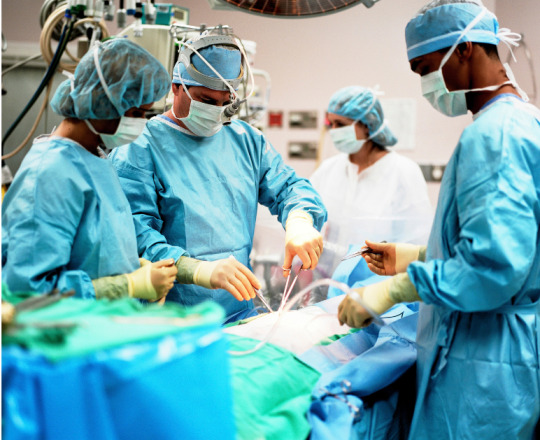
Laparoscopic surgery, also known as minimally invasive surgery, has revolutionized the field of medicine by offering numerous advantages over traditional open surgery. This surgical approach involves making small incisions and using a laparoscope (a thin, lighted tube with a camera) to visualize and operate on internal organs. The use of laparoscopy has expanded across various medical specialties due to its benefits, including reduced scarring, shorter recovery times, and decreased post-operative pain. In this article, we will explore the most common types of laparoscopic surgery in jabalpur performed in modern medicine.
Laparoscopic Cholecystectomy: One of the most prevalent laparoscopic procedures is the removal of the gallbladder, known as laparoscopic cholecystectomy(gallbladder stone surgery in jabalpur). This surgery is typically conducted to treat gallstones or other gallbladder-related issues. During the procedure, the gallbladder surgeon in jabalpur makes small incisions in the abdomen, inserts the laparoscope and other surgical instruments, and carefully removes the gallbladder.
Laparoscopic Appendectomy: An appendectomy is the surgical removal of the appendix, and the laparoscopic approach is now widely used for this procedure. By making a few small incisions, the laparoscopic surgeon in jabalpur can extract the inflamed or infected appendix, usually to treat acute appendicitis.
Laparoscopic Hernia Repair: Laparoscopic surgery is also employed to repair hernias, including inguinal, umbilical, and ventral hernias. The laparoscopic hernia surgery in jabalpur technique involves placing a mesh over the weakened area to reinforce the abdominal wall and prevent the hernia from recurring.
Laparoscopic Hysterectomy: In cases where a woman's uterus needs removal, a laparoscopic hysterectomy offers a minimally invasive alternative. The best laparoscopic surgeon in jabalpur can remove the uterus through small abdominal incisions while reducing the recovery time and potential complications associated with traditional open surgery.
Laparoscopic Nissen Fundoplication: This type of GERD surgery in jabalpur is utilized to treat gastroesophageal reflux disease (GERD) and hiatal hernias. The surgeon wraps the upper part of the stomach (fundus) around the lower part of the esophagus to strengthen the lower esophageal sphincter and prevent stomach acid from flowing back into the esophagus.
Laparoscopic Colectomy: When part of the colon needs to be removed due to conditions like colorectal cancer or diverticulitis, a laparoscopic colectomy is often the preferred approach. The hernia surgeon in jabalpur can excise the affected section of the colon and reconnect the healthy segments, all through small incisions in the abdomen.
Laparoscopic Nephrectomy: Laparoscopic nephrectomy involves the removal of a kidney, either for kidney donation (living donor nephrectomy) or to treat certain kidney diseases or cancer. The laparoscopic hernia surgery in jabalpur approach reduces post-operative pain and facilitates a quicker return to normal activities for the donor or patient.
Conclusion:
Laparoscopic surgery has revolutionized the way numerous surgical procedures are performed one of them is a hernia operation in jabalpur, offering patients faster recovery times, reduced scarring, and shorter hospital stays. As technology and medical expertise continue to advance, the range of laparoscopic procedures will likely expand further, providing patients with increasingly effective and less invasive treatment options. Always consult with a qualified medical professional to determine the most suitable surgical approach for your specific medical condition.
#laparoscopicsurgeoninjabalpur#laparoscopicherniasurgeryinjabalpur#gallbladdersurgeryinjabalpur#bestherniasurgeoninjabalpur#herniaoperationinjabalpur#laparoscopicsurgeryinjabalpur
0 notes
Text

Laparoscopic surgery, commonly referred to as minimally invasive surgery, has a number of benefits over open surgery. Here are several major advantages:
Smaller Incisions: Unlike open surgery, which requires larger incisions, laparoscopic surgery in jabalpur only requires small incisions (often between 0.5 and 1.5 centimetres). As a result, there are less scars and a more a more cosmetically appealing outcome.
Reduced Postoperative Pain: Smaller incisions and less tissue trauma typically lead to less postoperative pain. Patients often require less pain medication and experience a quicker return to normal activities.
Minimized Blood Loss: Laparoscopic techniques use specialized instruments and cauterization, which help minimize blood loss during surgery. This reduces the need for blood transfusions and decreases the risk of complications associated with excessive bleeding.
Shorter Hospital Stays: Laparoscopic procedures often require shorter hospital stays compared to open surgery. Patients may be discharged on the same day or within a few days, leading to cost savings and quicker recovery in the comfort of their own homes.
Faster Recovery: With smaller incisions and less tissue trauma, laparoscopic hernia surgery in jabalpur generally allows for faster recovery times. Patients can return to work, daily activities, and regular exercise routines sooner than with open surgery.
Improved Visualization: Laparoscopic procedures utilize a laparoscope, a thin tube with a camera, and a light source, which provides magnified and high-definition images of the surgical area. This enhanced visualization allows laparoscopic surgeon in jabalpur to perform precise and accurate maneuvers.
Reduced Risk of Infection: Smaller incisions and less exposure to internal organs reduce the risk of infection. Additionally, hernia surgery in jabalpur procedures involve fewer complications related to wound healing.
Decreased Adhesion Formation: Laparoscopic surgery reduces the formation of adhesions, which are abnormal bands of scar tissue that can cause pain and restrict organ movement. This is particularly advantageous for procedures involving delicate organs like the intestines.
Overall, gallbladder surgery in jabalpur offers numerous advantages, including less scarring, reduced pain, minimized blood loss, shorter hospital stays, faster recovery, improved visualization, decreased infection risk, and decreased adhesion formation. However, it is important to consult with the best laparoscopic surgeon in jabalpur to determine the most appropriate surgical approach for your specific condition.
#laparoscopicsurgeoninjabalpur#laparoscopicherniasurgeryinjabalpur#laparoscopicsurgeryinjabalpur#gallbladdersurgeoninjabalpur
0 notes
Text
what's laparoscopic surgery? when was laparoscopic surgery invented?
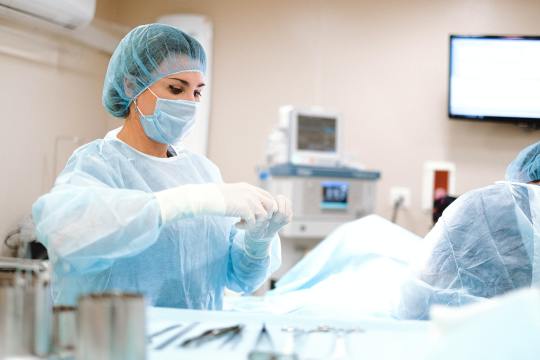
Laparoscopic surgery, also known as minimally invasive surgery, is a modern surgical technique that utilizes small incisions and specialized instruments to perform procedures within the abdominal or pelvic cavities. It involves the use of a laparoscope, a long, thin tube with a camera and light source, which allows the laparoscopic surgeon in jabalpur to visualize the internal organs on a monitor while performing the surgery.
Laparoscopic surgery in jabalpur offers several advantages over traditional open surgery, including reduced trauma, smaller incisions, less pain, faster recovery, and minimal scarring. It is commonly used for procedures such as gallbladder stone surgery in jabalpur, hernia surgery in jabalpur, GERD surgery in jabalpur, hysterectomy, and many others.
The concept of laparoscopic hernia surgery in jabalpur dates back to the early 20th century, but significant advancements and refinement of the technique occurred in the late 1980s and early 1990s. In 1987, French gynecologist Dr. Philippe Mouret performed the first laparoscopic cholecystectomy (gallbladder removal) on a human patient. This groundbreaking procedure paved the way for the widespread adoption of laparoscopic surgery in various specialties.
Since then, laparoscopic surgery in jabalpur has continued to evolve with the introduction of advanced instruments, improved imaging technologies, and specialized techniques. Today, it is a widely practiced and preferred surgical approach for many abdominal and pelvic procedures, offering patients less invasive options and faster recovery times compared to traditional open surgery.
#bestherniasurgeoninjabalpur#laparoscopicsurgeoninjabalpur#herniasurgery#laparoscopicherniasurgeryinjabalpur#gallbladdersurgeoninjabalpur
0 notes